NIL
2025 WCWS: Jessica Mendoza calls for change to obstruction rule after controversial ruling in Texas vs. Texas Tech
One of the key moments in Wednesday’s Game 1 of the 2025 WCWS final came in the fifth inning. That’s when a controversial obstruction call looked like it would steal the show as it set up Texas Tech’s first run against Texas. During the ESPN broadcast, Jessica Mendoza said the NCAA needs to change the […]
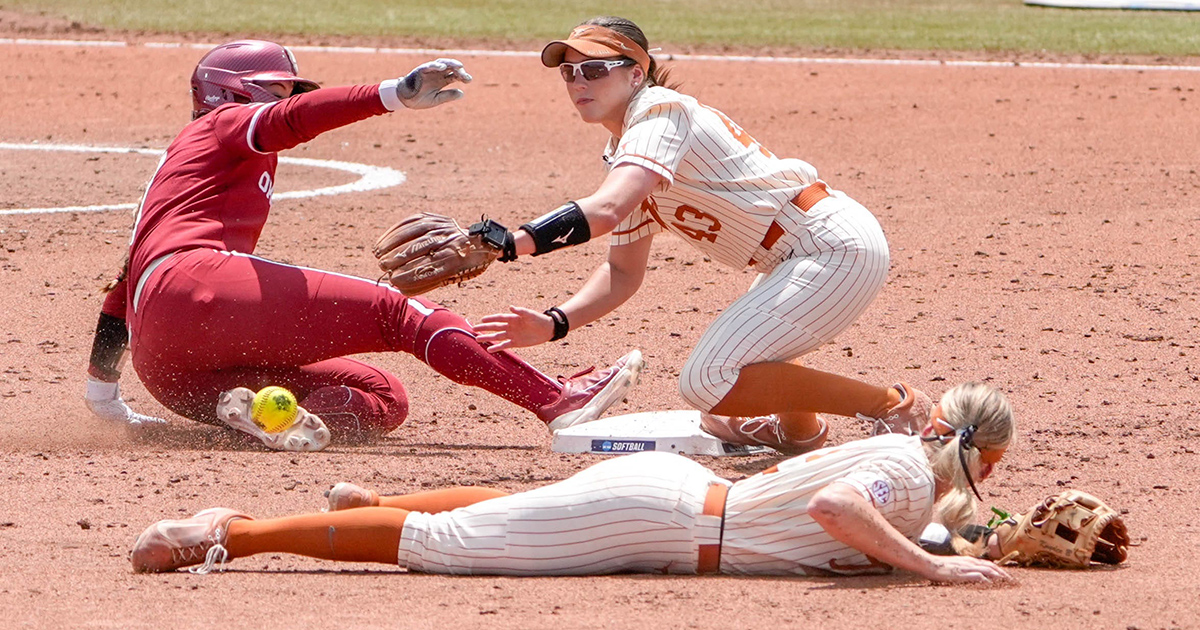
One of the key moments in Wednesday’s Game 1 of the 2025 WCWS final came in the fifth inning. That’s when a controversial obstruction call looked like it would steal the show as it set up Texas Tech’s first run against Texas.
During the ESPN broadcast, Jessica Mendoza said the NCAA needs to change the rule. She reiterated that afterward, calling for the NCAA to adjust the verbiage after the play.
Mendoza argued the runner, Logan Halleman, was out by a wide enough margin that obstruction didn’t make a difference. But by letter of the law, Leighann Goode obstructed her path to the base even though she was well out. That, Mendoza said, needs to change as obstruction takes center stage in Oklahoma City.
“It’s not, and they need to change the rule because the problem with the rule is if the runner is starting their slide – my thing is, if the runner is hosed, if she’s going to be out, then there is no obstruction,” Mendoza said on SportsCenter with Scott Van Pelt. “Is she obstructing if the runner is not even there yet? So the way that the rule reads is yes, the shortstop Leighann Goode was in the base path. Was she blocking the leading edge? But the point is it’s got to be when the runner is actually going into it. That’s the point. Is she obstructing the runner? But the runner was going to be out no matter what, and that’s why the rule has to change because that is not obstruction.
“That is not what the rule is for, and it’s hard here at the World Series. I am with you. We talked about it in the break during the game. I am so glad that that is not the leading topic of this amazing game.”
What is the obstruction rule in NCAA softball?
The NCAA changed the obstruction rule for the 2024 and 2025 seasons. The goal is to allow a runner a path to the base while running on a live ball. A play is deemed to be obstruction if a defensive player blocks any part of the leading edge of a base – including home plate – or “otherwise blocks the runner from advancing or returning to a base,” according to Rule 9.5.1.
“Obstruction occurs when a defensive player, neither in possession of the ball nor in the act of fielding a batted ball, impedes a batter’s attempt to make contact with a pitch or impedes the progress of any runner who is legally running bases on a live ball,” the rule states. “It can be intentional or unintentional. It is obstruction if a defensive player is blocking the whole base/plate or base path without the ball and/or the runner does not have a path to the base/plate.”
Once the fielder has possession of the ball, they can be between the runner and the base. Additionally, umpires can call obstruction even if no physical contact occurs, which was the case Wednesday night before Goode placed the tag. It can also occur on a force play.
The rationale, according to the rule, is to “more clearly define the basic tenets of the obstruction rule to help coaches teach their defensive players how to properly defend at the base/plate and to assist umpires in making the correct ruling in these situations.”
Texas wins a thriller in Game 1 of WCWS final
The obstruction call was just one of the wild moments in Wednesday’s Game 1 of the championship series. Texas put together a rally in the sixth inning thanks in large part to Reese Atwood’s heroics.
Texas Tech pitcher NiJaree Canady attempted to intentionally walk Atwood, but a pitch drifted toward the strike zone. The Longhorns catcher capitalized, sending it to left field to drive in two runs and give UT a two-run lead.
But things got wild again in the bottom of the seventh. Texas Tech got a strikeout from Teagan Kavan and Atwood hit the home plate umpire’s mask on the throw to second on the stolen base attempt. Mike White then challenged and argued there was batter interference, as well, meaning the baserunner would be out. The umpires upheld the call on the field, though, and the game ended one batter later.
NIL
Trump signs order to clarify college athletes’ employment status
By WILL WEISSERT, Associated Press WASHINGTON (AP) — President Donald Trump on Thursday signed an executive order mandating that federal authorities clarify whether college athletes can be considered employees of the schools they play for in an attempt to create clearer national standards in the NCAA’s name, image and likeness era. Trump directed the secretary of labor and the […]

By WILL WEISSERT, Associated Press
WASHINGTON (AP) — President Donald Trump on Thursday signed an executive order mandating that federal authorities clarify whether college athletes can be considered employees of the schools they play for in an attempt to create clearer national standards in the NCAA’s name, image and likeness era.
Trump directed the secretary of labor and the National Labor Relations Board to clarify the status of collegiate athletes through guidance or rules “that will maximize the educational benefits and opportunities provided by higher education institutions through athletics.” The order does not provide or suggest specifics on the controversial topic of college athlete employment.
The move comes after months of speculation about whether Trump will establish a college sports commission to tackle some of the thorny issues facing what is now a multibillion-dollar industry. He instead issued an order intended to add some controls to “an out-of-control, rudderless system in which competing university donors engage in bidding wars for the best players, who can change teams each season.”
NIL
The Clemson Insider
CHARLOTTE — After a career year a season ago, Antonio Williams seriously considered forgoing his senior season at Clemson and making the move to the NFL. Williams was a catalyst for the resurgent Tigers’ offense last season, recording 75 receptions for 904 yards with 11 touchdown catches, leading the team in all three categories. After […]

CHARLOTTE — After a career year a season ago, Antonio Williams seriously considered forgoing his senior season at Clemson and making the move to the NFL.
Williams was a catalyst for the resurgent Tigers’ offense last season, recording 75 receptions for 904 yards with 11 touchdown catches, leading the team in all three categories. After that kind of season, it would have been understandable had he decided to enter the NFL Draft.
However, Williams wasn’t pleased with some of the feedback he was getting and ultimately decided to return for one more go around at Clemson.
“I had to really sit down and think about what was best for my future,” Williams told The Clemson Insider. “I didn’t like some of the grades I was getting back from the draft. I didn’t want to settle and just go be a draft pick just because I could. I have a level of expectation for myself of where I want to go and what type of player I think I am. That was the biggest thing coming back.”
There is a risk/reward involved with coming back due to the ever-existent possibility of an injury. After missing most of his sophomore campaign for that very reason, it’s something Williams is more than familiar with.
At the end of the day, Williams decided the risk was worth the reward because he feels that he has unfinished business with the Tigers.
“Wanting to be remembered and build a great legacy here,” Williams added. “I want to leave the receiver room better than I found it.”
Then there is the money factor. With the advent of NIL and a new revenue-sharing model that took effect on July 1, Williams is going to be well compensated for his final season at Clemson, and depending on where he might have been picked, possibly being paid even more than he would have next season had he decided to enter the draft.
“For sure. When you look at the numbers and things like that, if we couldn’t make any money in college, then obviously, if you are in it for money, then there would be no question of going to the NFL,” Williams said. “You can actually profit off your NIL in college and that is great.”
NIL
Cumberland partners with Opendorse to launch NIL program
Cumberland is partnering with Opendorse to enhance its efforts surrounding name, image and likeness (NIL), providing Phoenix student-athletes the tools and resources needed to build their personal brand and capitalize on new opportunities. Opendorse is a leading NIL platform and marketplace in college athletics, helping student-athletes connect with brands, fans and donors to monetize their […]
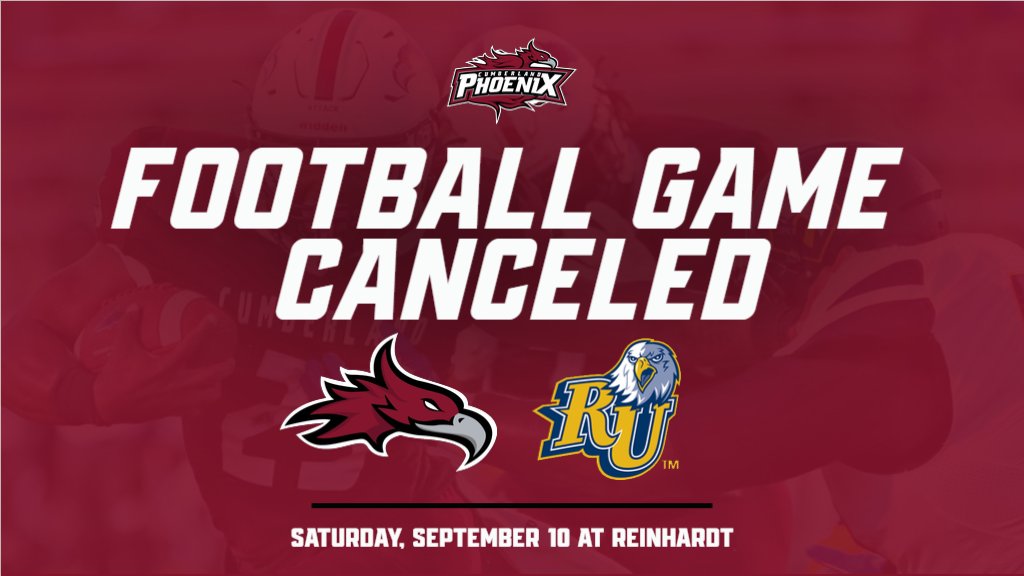
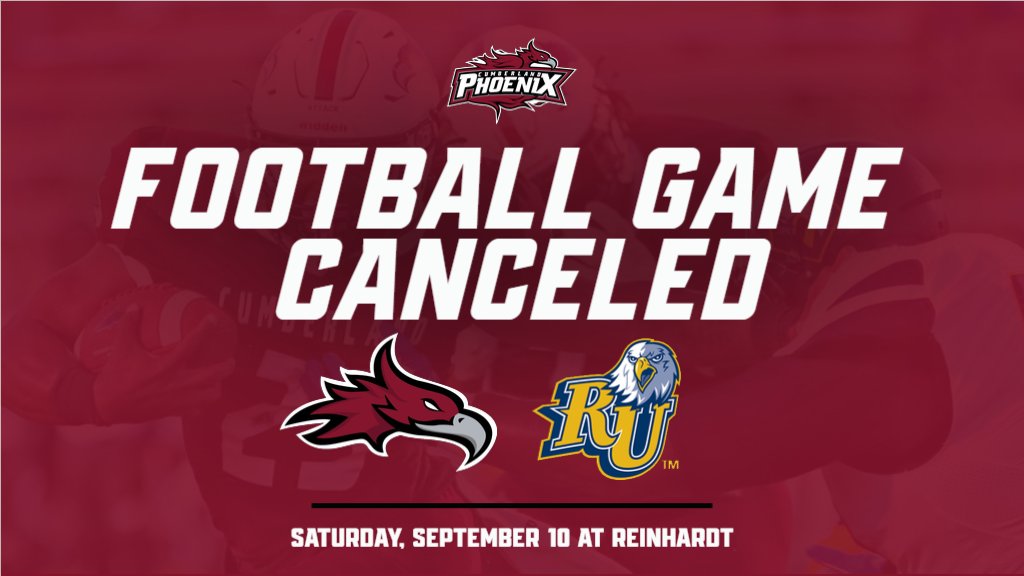
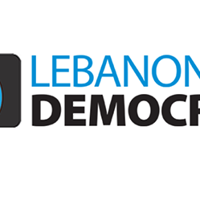
Cumberland is partnering with Opendorse to enhance its efforts surrounding name, image and likeness (NIL), providing Phoenix student-athletes the tools and resources needed to build their personal brand and capitalize on new opportunities.
Opendorse is a leading NIL platform and marketplace in college athletics, helping student-athletes connect with brands, fans and donors to monetize their name, image and likeness. With this partnership, Cumberland student-athletes will gain access to a suite of tools through the Opendorse platform including education, compliance resources and marketing opportunities to support NIL growth.
NIL
Saban praises Trump order on college sports, pay-to-play restrictions
NEWYou can now listen to Fox News articles! Former Alabama head football coach Nick Saban gave kudos to President Donald Trump for signing an executive order that set new restrictions on payments to college athletes on Thursday. The order prohibits athletes from receiving pay-to-play payments from third-party sources. However, the order does not impose any […]
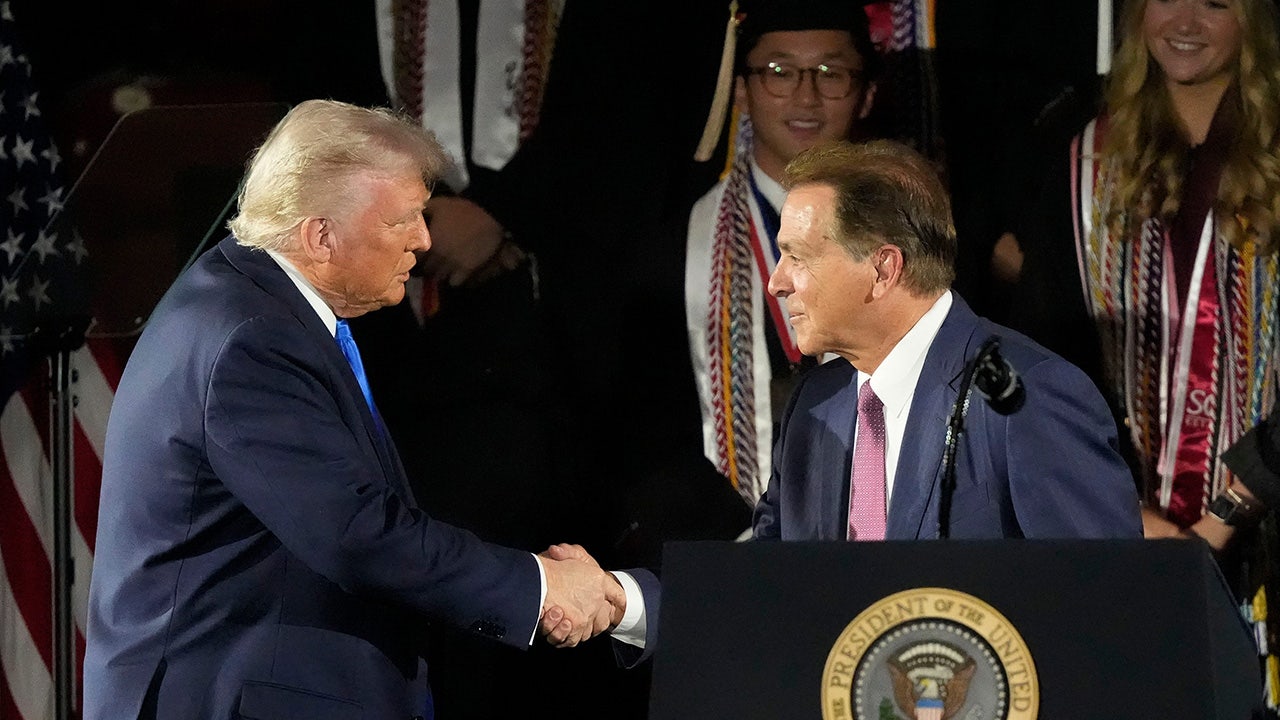
NEWYou can now listen to Fox News articles!
Former Alabama head football coach Nick Saban gave kudos to President Donald Trump for signing an executive order that set new restrictions on payments to college athletes on Thursday.
The order prohibits athletes from receiving pay-to-play payments from third-party sources. However, the order does not impose any restrictions on NIL payments to college athletes by third-party sources.
“I think President Trump’s executive order takes a huge step in providing the educational model, which is what we’ve always tried to promote to create opportunities for players, male and female, revenue and non-revenue, so they can have development as people, students, and develop careers and develop professionally if that’s what they choose to do,” Saban told “Fox & Friends” on Friday.
CLICK HERE FOR MORE SPORTS COVERAGE ON FOXNEWS.COM
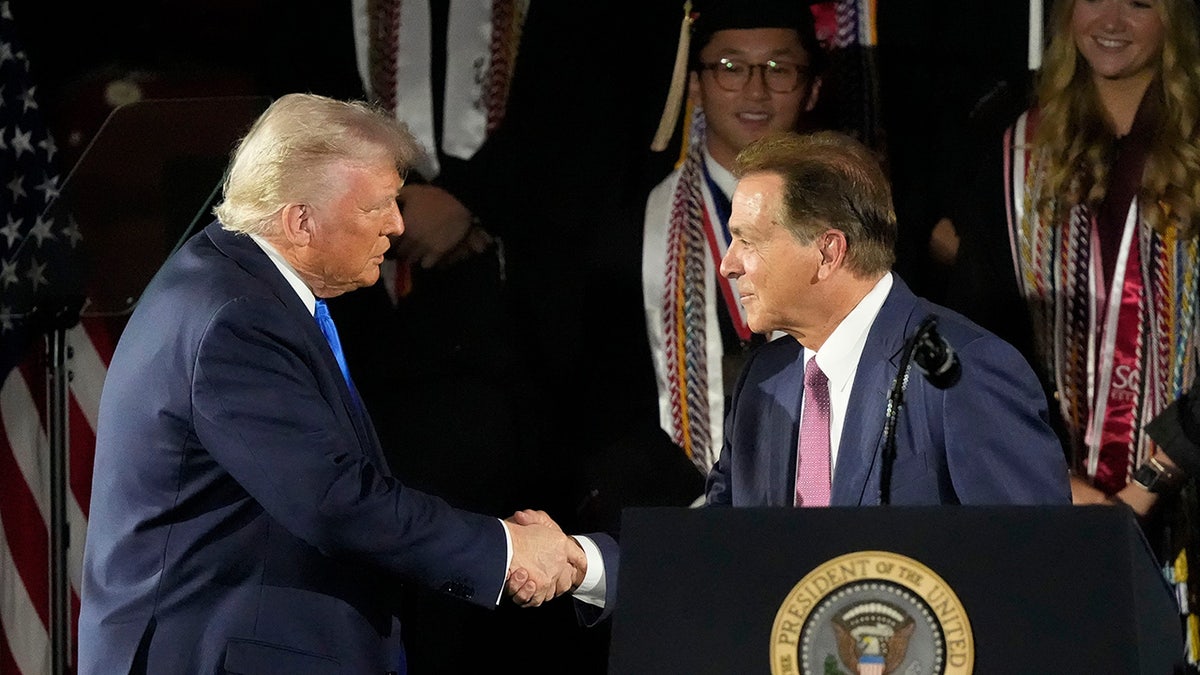
President Donald Trump shakes hands with legendary Alabama football coach Nick Saban before delivering a special commencement address to University of Alabama graduates at Coleman Coliseum. Graduation occurs over the weekend. (Gary Cosby Jr.-Tuscaloosa News)
“I think we sort of need to make a decision here relative to do we want to have an education-based model, which I think the president made a huge step toward doing that, or do we want to have universities sponsor professional teams? And I think most people would choose the former.”
The order states that “any revenue-sharing permitted between universities and collegiate athletes should be implemented in a manner that protects women’s and non-revenue sports.”
“The Order requires the preservation and, where possible, expansion of opportunities for scholarships and collegiate athletic competition in women’s and non-revenue sports.”
No clear guidelines for how those sports would be accounted for were provided in the initial announcement. However, Saban seemed confident that college sports are safe.

President Donald Trump poses with Alabama Crimson Tide head coach Nick Saban and members of the Crimson Tide ceremony honoring the college football playoff champion Crimson Tide on the South Lawn at the White House on April 10, 2018. (Geoff Burke-USA TODAY Sports)
‘NOT A DISTRACTION’: NORTH CAROLINA FOOTBALL PLAYERS WEIGH IN ON BILL BELICHICK’S ROMANCE WITH JORDON HUDSON
“I think the clearing house is there to authenticate name, image and likeness. In other words, is your marketing value relative to what you’re getting paid to do a marketing opportunity? When you cross that line, that’s when it becomes pay for play,” he said. “So you have collectives that raise money that pay players, and they really don’t do a relative marketing job to earn that money, and that’s where this whole thing has kind of gotten sideways. I think this whole clearing house is there to sort of protect the collective affecting competitive balance in college sports.”
“I’m for keeping all the sports that we have as many as we can have, but there are financial concerns relative to how many sports can you promote that don’t create revenue,” Saban added. “I think one of the things people need to understand about college sports, they say it’s a business, but it’s really not a business. It’s revenue-producing, and two sports have created the revenue to have 20 other sports. And I think that’s why it’s important we have a system in place. I think President Trump’s made the first step…that would protect the opportunities that we’ve been able to provide male and female non-revenue sports. I think it’s everybody’s goal to keep all those opportunities intact.”
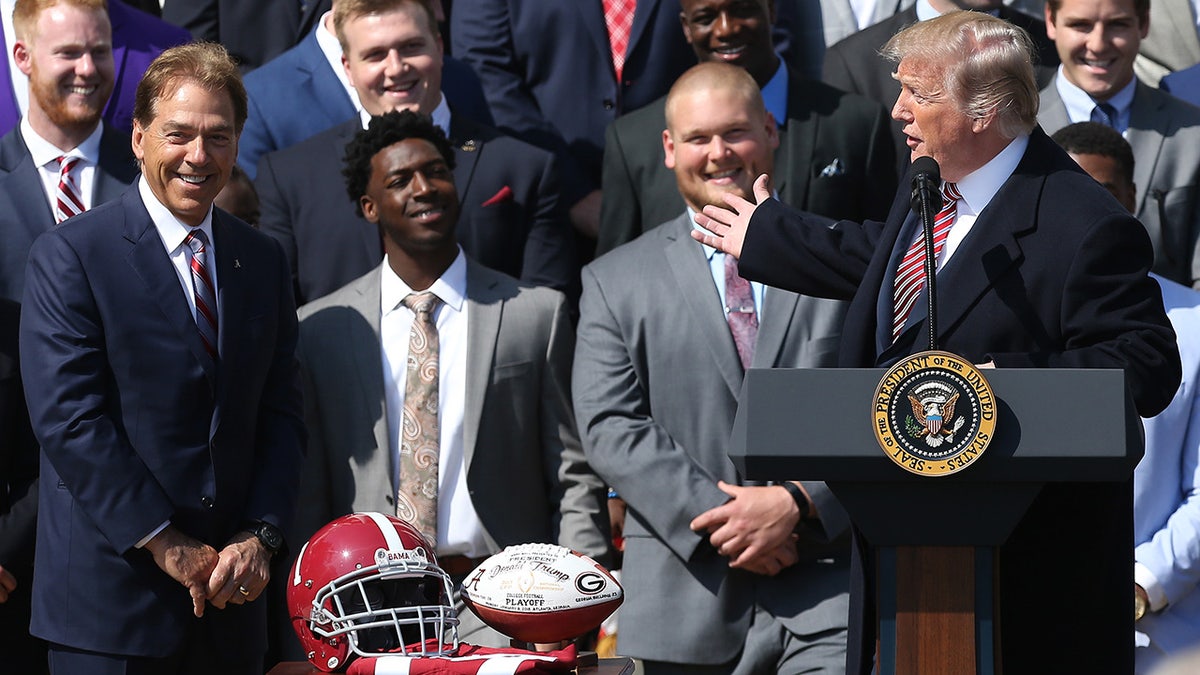
FILE – President Donald Trump gestures as Alabama Crimson Tide head coach Nick Saban (L) smiles at a ceremony honoring the college football playoff champion Crimson Tide on the South Lawn at the White House on April 10, 2018. (Geoff Burke-USA Today Sports)
CLICK HERE TO GET THE FOX NEWS APP
Saban and Trump met back in May to discuss the current state of college athletes and NIL deals. Saban retired in 2024, largely due to the new culture.
Fox News’ Jackson Thompson contributed to this report.
Follow Fox News Digital’s sports coverage on X, and subscribe to the Fox News Sports Huddle newsletter.
NIL
Florida AD Scott Stricklin issues statement regarding executive order on NIL
President Donald Trump issued an executive order Thursday designed to improve the state of name, image and likeness, specifically to prohibit third-party payments. The order, titled “Saving College Sports”, is in lockstep with the goals established by the College Sports Commission’s name, image and likeness clearinghouse and is widely supported by athletic directors around the country. The College […]
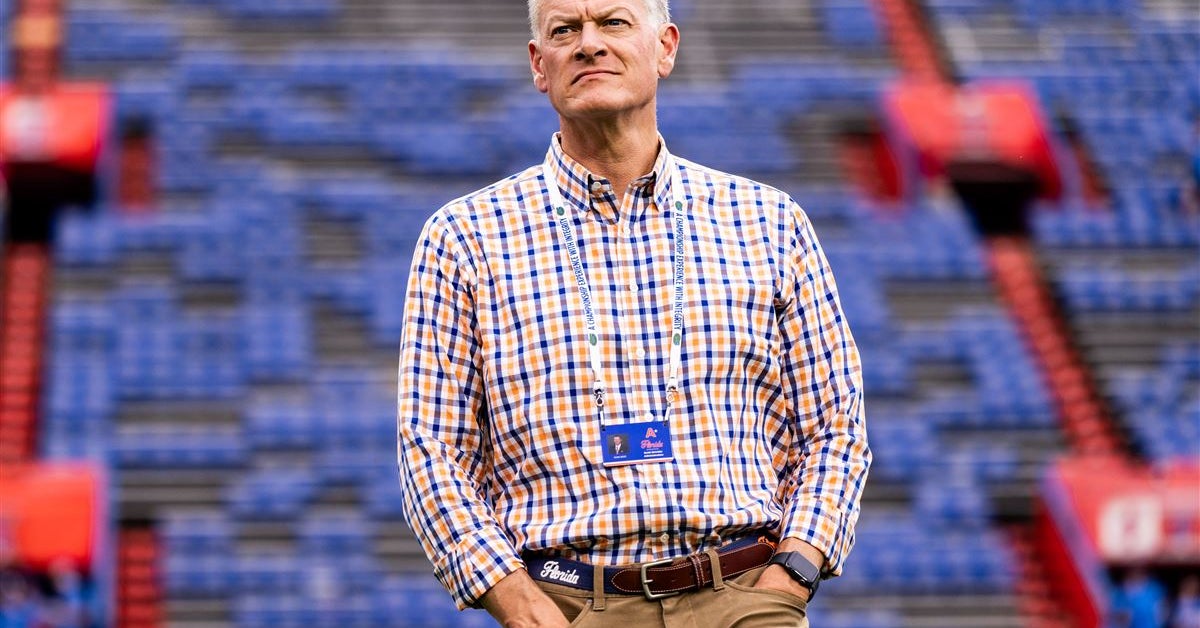
President Donald Trump issued an executive order Thursday designed to improve the state of name, image and likeness, specifically to prohibit third-party payments. The order, titled “Saving College Sports”, is in lockstep with the goals established by the College Sports Commission’s name, image and likeness clearinghouse and is widely supported by athletic directors around the country.
The College Sports Commission, or CSC, was established to govern financial issues in the revenue-sharing era, and it was created in partnership with financial consulting firm Deloitte, . The CSC established an “NIL Go” portal designed to ensure fair market value and valid business purpose based on an actual endorsement. The NIL Go portal provides student-athletes an avenue to report third-party NIL deals to be evaluated for rules compliance; an athlete can do this before accepting any deal, ensuring their eligibility won’t be jeopardized.
The executive order also has the support of the NCAA, which released a statement late Thursday after the executive order was issued.
“The NCAA is making positive changes for student-athletes and confronting many challenges facing college sports by mandating health and wellness benefits and guaranteeing scholarships, but there are some threats to college sports that federal legislation can effectively address and the Association is advocating with student-athletes and their schools for a bipartisan solution with Congress and the Administration,” NCAA President Charlie Baker wrote in a statement. “The Association appreciates the Trump Administration’s focus on the life-changing opportunities college sports provides millions of young people and we look forward to working with student-athletes, a bipartisan coalition in Congress and the Trump Administration to enhance college sports for years to come.”
In the 24 hours since, athletic directors around the country have chimed in on the order, including from the Southeastern Conference; Alabama’s Greg Byrne praised the order, for example, Thursday night.
“The University of Alabama applauds this executive order from President Trump to help ensure a long-term, sustainable model of intercollegiate athletics,” Byrne wrote. “We are proud of our broad-based athletics programs and strongly support future regulatory and congressional action that will preserve these opportunities for student-athletes.”
Now, Florida’s athletic director, Scott Stricklin, has followed suit, praising the order and its intention to improve the current state of collegiate athletics in the era of NIL and, most recently, revenue sharing.
“The attention President Trump and congressional leaders are giving to the future of college athletics is welcomed and appreciated. Yesterday’s executive order underscores the growing recognition in Washington of the need to modernize the collegiate model while preserving the educational and competitive opportunities it provides to student-athletes nationwide,” Stricklin wrote. “At the University of Florida, we remain committed to supporting our student-athletes in every aspect of their development. We’re encouraged by the White House’s and Congress’s engagement and look forward to working with policymakers, the SEC, and our peers across college sports to shape thoughtful solutions that ensure the long-term strength and sustainability of college athletics.”
Unsurprisingly, the current state of collegiate athletics was a consistent talking point at SEC Media Days, with coaches in attendance discussing the impact of NIL and revenue sharing following the House v. NCAA settlement.
“Right now, I would say that there’s a ton of different interpretations of the market,” Florida football head coach Billy Napier said at SEC Media Days in Atlanta. “We need clarity on: what is the role of a collective? What is going to be approved from a third-party NIL deal? What is legal relative to high school players, pre-enrollment? And then, you know, we have no idea what this market – where’s the dust gonna settle for a veteran player on the team when it comes to marketing, corporate sponsorship, true NIL. We don’t know.”
Less than a week after Napier’s comments, the immediate future of the roles collectives looked a bit clearer. Ross Dellenger of Yahoo! Sports reported attorneys for the House plaintiffs reached an agreement with NCAA officials and the power conferences to allow booster-backed collectives or any “school-associated entity” to operate as traditional businesses do in handing out NIL deals and sponsorships.
If there’s any guarantees regarding NIL and the state of collegiate athletics, President Donald Trump’s executive order won’t be the final action taken at the federal level – it’s simply the latest implementation.
NIL
Nick Saban Strongly Endorses President Trump’s Executive Order
Nick Saban Strongly Endorses President Trump’s Executive Order originally appeared on The Spun. The advent of NIL deals significantly diminished the influence that college football recruiters have had over the past few years. But a new executive order from President Trump will aim to curtail that, much to the delight of former national champion Nick […]
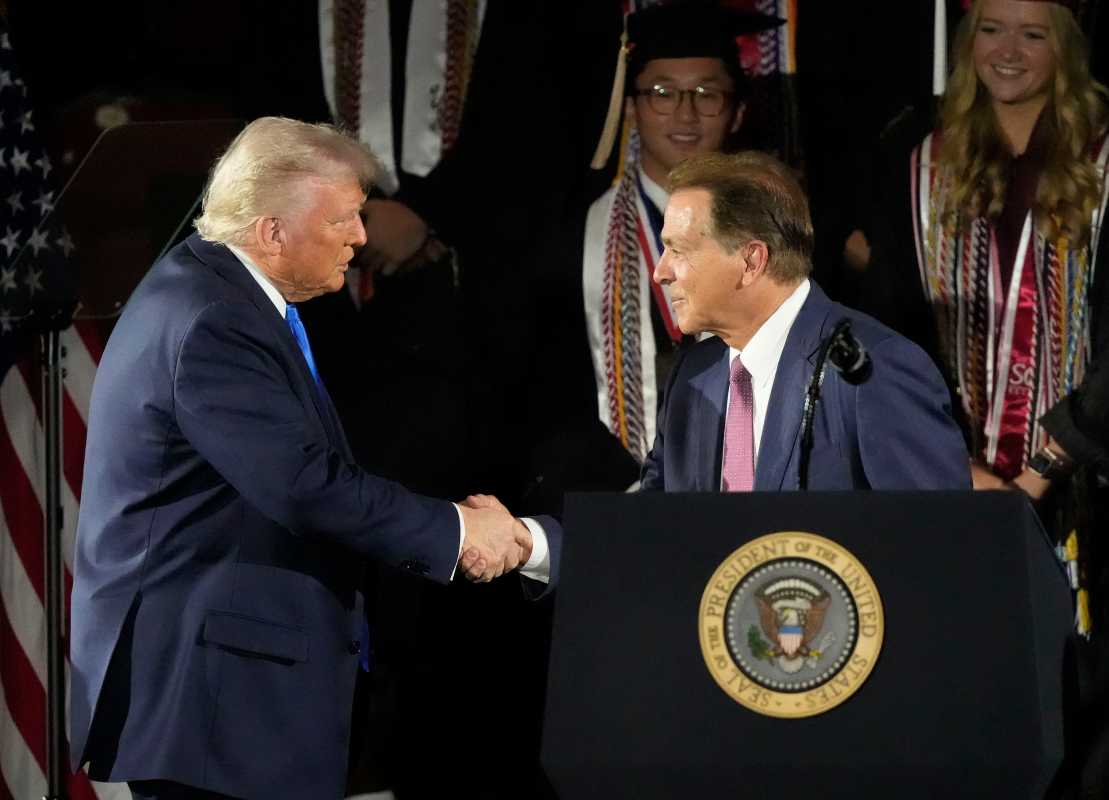
Nick Saban Strongly Endorses President Trump’s Executive Order originally appeared on The Spun.
The advent of NIL deals significantly diminished the influence that college football recruiters have had over the past few years. But a new executive order from President Trump will aim to curtail that, much to the delight of former national champion Nick Saban.
Advertisement
The “Saving College Sports” executive order reins in NIL deals in several ways.
“The future of college sports is under unprecedented threat,” the order says. “A national solution is urgently needed to prevent this situation from deteriorating beyond repair and to protect non-revenue sports, including many women’s sports, that comprise the backbone of intercollegiate athletics, drive American superiority at the Olympics and other international competitions, and catalyze hundreds of thousands of student-athletes to fuel American success in myriad ways.”

US President Donald Trump gestures during the award ceremony for the FIFA Club World Cup 2025 Champions, following the final football match between England’s Chelsea and France’s Paris Saint-Germain at the MetLife Stadium in East Rutherford, New Jersey on July 13, 2025. (Photo by ANGELA WEISS / AFP) (Photo by ANGELA WEISS/AFP via Getty Images) ANGELA WEISS/Getty Images
Saban has been a fan of the order from the get-go and is in favor of more guardrails moving forward. Appearing on Fox News, Saban praised the President for signing the order and believes that the nation is at a crossroads. He feels that the choice is now between “an education-based mode,” which Trump supports, and university-sponsored pro teams.
Advertisement
“I think President Trump’s Executive Order takes a huge step in providing the educational model that has always been what we’ve tried to promote to create opportunities for players,” Saban said. “I think we sort of need to make a decision here. Do we want an education-based model (which I think the President took a big step towards doing that) or do we want to have universities sponsor professional teams? I think most people would choose the former.”
There are a lot of things that the order does and a lot of things that the order doesn’t do.
Advertisement
What Trump signed doesn’t appear to be the framework for an “education-based model,” but rather an attempt to simply rein in the athletes getting paid directly. Everything else, from the billion-dollar media rights deals to the huge investments going directly into football infrastructure to the increasingly large coaching contracts, stays the same.
While Saban seems to believe that most people prefer the education-based model, it’s hard to tell if that’s what we’re likely to get moving forward.
More importantly, the pro-style model has become so ingrained in college football and football culture itself that it may be impossible to un-ring the bell in the first place.
Advertisement
Related: Trump Considers Executive Order on College Athlete Payments
Nick Saban Strongly Endorses President Trump’s Executive Order first appeared on The Spun on Jul 25, 2025
This story was originally reported by The Spun on Jul 25, 2025, where it first appeared.
-

 College Sports2 weeks ago
College Sports2 weeks agoWhy a rising mid-major power with an NCAA Tournament team opted out of revenue-sharing — and advertised it
-

 Sports2 weeks ago
Sports2 weeks agoNew 'Bosch' spin
-

 Fashion2 weeks ago
Fashion2 weeks agoEA Sports College Football 26 review – They got us in the first half, not gonna lie
-
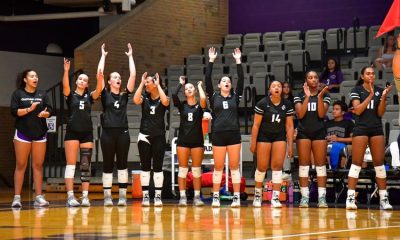
 Sports1 week ago
Sports1 week agoVolleyball Releases 2025 Schedule – Niagara University Athletics
-

 Sports3 weeks ago
Sports3 weeks agoE.l.f Cosmetics Builds Sports Marketing Game Plan Toward Bigger Goals
-

 Health2 weeks ago
Health2 weeks agoCAREGD Trademark Hits the Streets for Mental Health Month
-
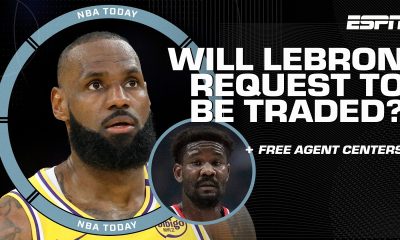
 Youtube3 weeks ago
Youtube3 weeks agoWill LeBron James request a trade? 🤔 Windy says MULTIPLE TEAMS would make offers 👀 | NBA Today
-

 College Sports2 weeks ago
College Sports2 weeks agoBuford DB Tyriq Green Commits to Georgia
-

 Youtube2 weeks ago
Youtube2 weeks agoWill Giannis DEPART Milwaukee⁉️ + How signing Turner & waiving Dame impacts the Bucks | NBA Today
-
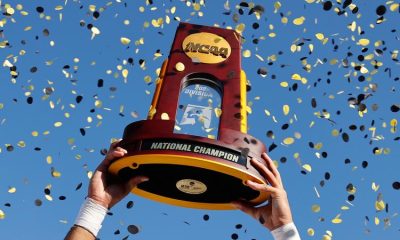
 Sports2 weeks ago
Sports2 weeks agoNew NCAA historical database provides wealth of information on championships



























